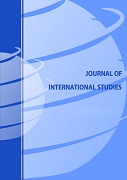FACTORS AFFECTING THE CAPITAL STRUCTURE: NEW EVIDENCE FROM GCC COUNTRIES
FACTORS AFFECTING THE CAPITAL STRUCTURE: NEW EVIDENCE FROM GCC COUNTRIES
Author(s): Audil Rashid Khaki, Ahmet AkinSubject(s): Business Economy / Management, Economic policy, Transformation Period (1990 - 2010), Present Times (2010 - today)
Published by: Fundacja Centrum Badań Socjologicznych
Keywords: capital structure; leverage; firm-specific factors; GCC countries;
Summary/Abstract: This study aims to identify the firm-specific determinants of capital structure in the Gulf Cooperation Council (GCC) countries, namely Bahrain, Kuwait, Qatar, Oman, Saudi Arabia, and the United Arab Emirates. A number of regression models are employed on the data of 329 non-financial firms for the period between 2009 and 2017. The data has been analysed at both country level and regional level to look for the evidence on the major determinants of capital structure and the differences, if any. The findings indicate that size, tangibility, and growth opportunities have positive impact on leverage. On the other hand, profitability, age, financial constraints, liquidity, and government ownership affect the leverage negatively. There is a weak evidence for a positive relationship between leverage and operating risk. The results also imply that the institutional features of GCC countries have a minor effect on the leverage within a general model for the region. Although GCC countries have a unique institutional environment that distinguishes them substantially from other countries, the current study provides evidence that the capital structure decisions are influenced by the same factors as in other developing countries.
Journal: Journal of International Studies
- Issue Year: 13/2020
- Issue No: 1
- Page Range: 9-27
- Page Count: 19
- Language: English

